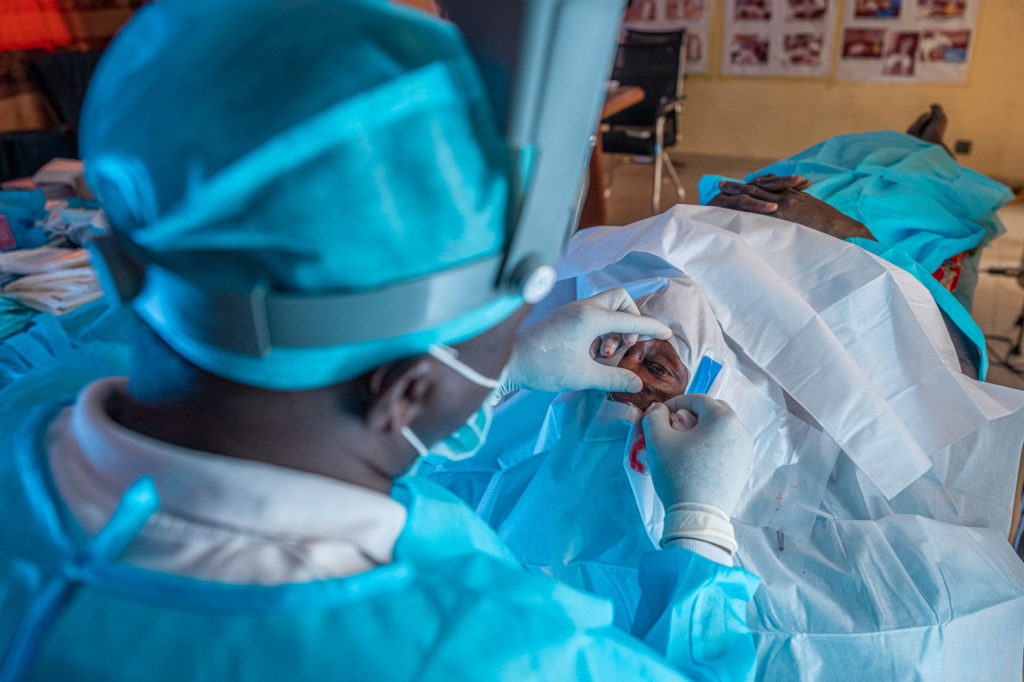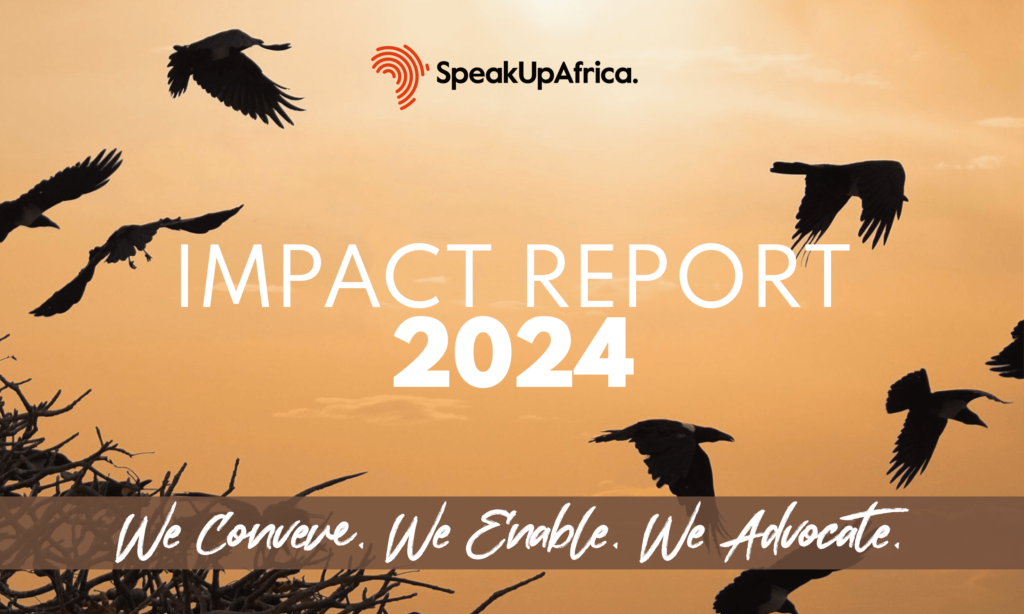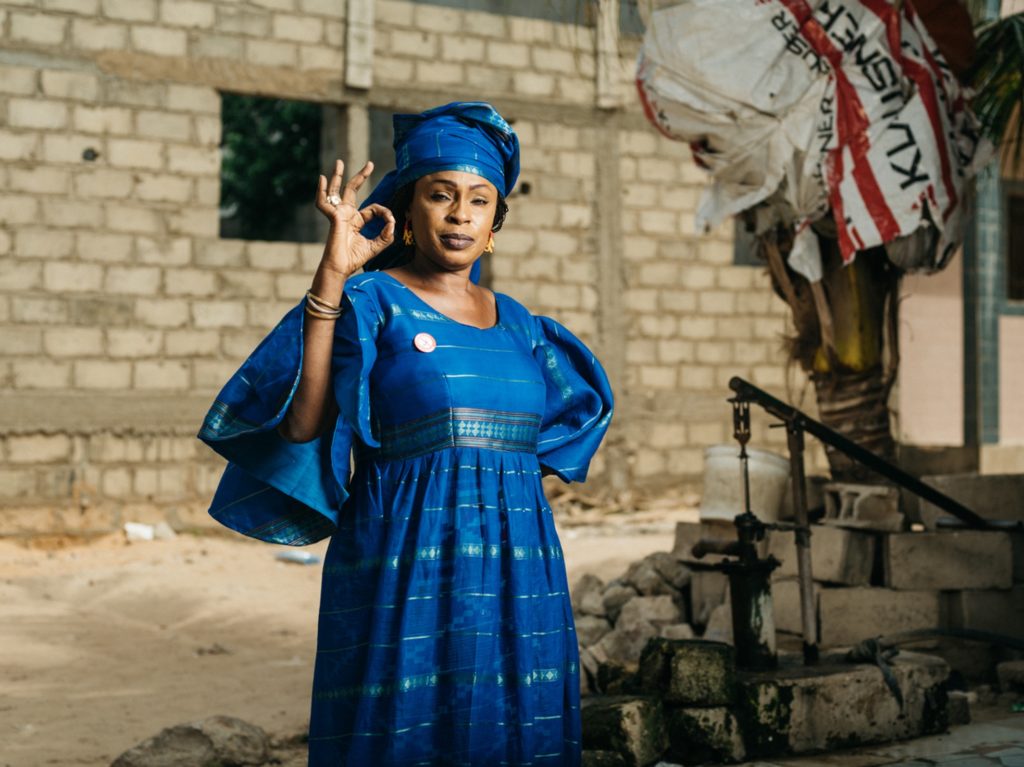Pr. Happi explains why African govts must invest in scientific research to Infactng:

Christian Tientcha Happi, is a Professor of Molecular Biology and Genomics and the Director of African Centre of Excellence for Genomics of Infectious Diseases (ACEGID) at the Redeemers University. He has a BSc. in Biochemistry, MSc and PhD in Molecular Parasitology from the University of Ibadan in 1993, 1995 and 2000. He is one of the leading lights in the field of science in Africa and has carried out research with focus on Human Genomics, Molecular Biology and Genomics of Infectious Disease like Lassa Fever, Malaria and Ebola. His laboratory confirmed the first case of Ebola in Nigeria and he has been working diligently on helping to end the coronavirus pandemic in Nigeria by developing a rapid testing kit that could reveal the result in 15 minutes.
You have a lot of feathers in the scientific circle, can you establish your bonafides by telling us about your academic background?
My name is Professor Christian Tientcha Happi, a Professor of Molecular Biology and Genomics in the Department of Biological Sciences, and the Director African Center of Excellence for Genomics of Infectious Diseases (ACEGID), Redeemers University. I hold a BSc in Biochemistry, MSc and PhD in Molecular Parasitology from the University of Ibadan in 1993, 1995 and 2000 respectively. I did my post-doctoral research in Molecular Biology and Genomics at the Harvard University, School of Public Health, Boston, MA, USA (2000-2003). I’m currently the Director, Directorate of Research Innovations and Partnerships (DRIPs), Redeemers University.
What are your past and current research interests?
My research focus is on Human Genomics, Molecular Biology and Genomics of Infectious Diseases, especially Malaria, Viral Haemorrhagic Fevers (Lassa fever, Ebola Virus Disease, and others), and HIV.
My current research activities consist of using innovative approaches that combines patient care, fieldwork, laboratory, molecular biology and genomics methods for discoveries that have shifted the paradigm in clinical research and applications in parasites and viral diagnosis, parasites biology and genomics, Pharmacogenomics, and human genomics. In addition, I am passionate about building research capacity and human resource through training and mentoring activities.
Through my research, we have been able to identify molecular markers of antimalarial drug resistance in Plasmodium falciparum, the agent of malaria. We recently discovered new viruses (EKV-1 and EKV-2, and developed new rapid diagnoses for Ebola virus disease (EVD), and Lassa fever virus.
My laboratory confirmed the first case of Ebola Virus Disease in Nigeria in the 2014 Ebola outbreak, and work with Nigerian Health Officials for the successful containment of the Ebola outbreak in Nigeria.
Research work in my laboratory contributed significantly to the establishment of the global reference for human genetic variation. Our research work has also resulted in identification of new genes associated with human resistance to infection of Lassa fever virus.
I have been working in the space of infection diseases in the past 22 years, across West Africa and on Lassa fever, Ebola, monkey pox, yellow fever and coronavirus.
What is the idea behind the creation of the African Centre of Excellence for Genomic Infectious Diseases and what have you achieved since its creation?
The genomic works that I have been doing over the past 12 years on haemorrhagic fever is mainly to understand the nature of the virus and leverage those information and translate it to tools like a point of care diagnostic, also things like a vaccine, we are also very much involved in capacity building, so we set up one of the best genomic platforms where we are training what we call a critical mass of young Africans.
So, the Africa Centre of Excellence for Genomic Infectious Diseases that I am the founder and Director is designed to create what we call academic and research environment that transcend national boundaries, where young Africans can actually use that platform to express their God-given talent and then use such platform to do genomics for public health, development of the continent so in so doing, we are basically focusing on training what we refer to as critical mass African scientists that can annex the knowledge and skill, tools of genomic to address problem of infectious disease and specifically control and elimination, eradiation of infectious disease. In addition to that we are building a new genomic curriculum that is applicable to infectious disease. Also we are engaging public health community in education.
That is what we have been doing in the past decade; overall our goal is basically to build the next generation of what is called African pathogen hunters, doing this in Africa, with Africa in collaboration with friends, colleague and partners outside, so that we can stop playing what I call orphans instead of defence. Because what we see today, is that anytime there is outbreak or epidemic of diseases somewhere the world start battling, but I think now we need to start thinking of how we can use the skill and knowledge that we have to start uncovering those virus and develop counter measures before they come to us.
That is the counter measure we are taking now and we are going to be leveraging on platform and skill, talent we are grooming.
You have done a lot in the area of the coronavirus pandemic, what has been your major contribution to the eradication of the pandemic?
We are able to develop one of the fastest rapid diagnostic test kit for covid-19 in the world, prior to that within five days or a week after the first case of covid was announced in Nigeria, we were able to come up with e-sub-screening test tools in Nigeria and link that up with other local governments and Yaba Hospital.
Then we went on to develop the rapid diagnostic test kit for covid, how did we do that? We did that because we were the lab that reconfirmed the very first case in Lagos that was tested by PCR, Nigerian Centre for Disease Control (NCDC) sent the sample to us and we were able to confirm it.
We did that speedily. We set up the record that nobody is ever able to beat in the world, from sample collection to releasing of data on the international genomic platform call G-SET, it took us 72 hours. This process usually take weeks but we did it in 72 hours. And it is based on that particular sequence and other sequence that follow that we went on to develop the diagnose test kit.
This test kit is actually faster and cheaper, in which within 10 minutes to 15 minutes you will have the result. You don’t need to collect blood sample, just saliva and you don’t need specialized laboratory. It is the test that is most adopted for Africa because you don’t need high specialized laboratory.
It is just like pregnancy test, another thing is that it target the virus RNA and it is very precise and specific.
With so much talents in Africa, do you think we have enough support or research grants to enable scientists like yourself do more so the continent can be self-reliant in science?
I don’t think African countries see any value in research. African leaders promised that they are going to dedicate two percent of their Gross Domestic Product (GDP) to support research but they are not doing it, except in Rwanda that is dedicating about 0.5 percent towards research. So that definitely is a problem, you cannot make progress, as a nation if you do not fund education and research and that is the reason Africa is over dependent on other countries for everything.
It’s evident even during this covid-19 as we are over dependent on international communities for everything from Personal Protective Equipment (PPE), to Vaccine, we are depending on the international community. Africa’s independence will only come when they invest in research and take responsibility for their problem and start to look inward in finding solution to their problems.
It is obvious that we are at the mercy of different countries basically we do not produce anything, we are basically consumers not producers, that puts us in a weak and vulnerable position. That is the fact we can’t shy away from. The truth of the matter is, as long as Africa does not invest in research and develop her own capacity and addresses her own problems, we will continue to be weak and exploited and at the back of the queue.
It is sad that Africa is still not prioritizing scientific research, but how can we use Research and Innovation address our developmental challenges in Africa?
The only way to do that is investment through the private sector and government establishment. Funding research is not only the responsibility of government, private sector also need to be involved but unfortunately in Africa, private sector investment is nothing on research. What you see in Africa is people that can invest in research refuse to do so, what they do is to go to Harvard or Cambridge to make donation, to institution where their money will not make any impact.
They ignore where they should put their money and go elsewhere because they have inferiority complex. If there is any lesson to learn I think they would have seen through this pandemic that it’s better to invest in your country than to go elsewhere because during the pandemic everybody was on lock down and they couldn’t fly around with private jet.
It’s clear that investment in research in Africa academic will be very helpful because Africa needs to develop. Secondly, when you look at Africa, one of the reasons Africa is stagnant is simply because there is no brain circulation in Africa. Knowledge in Africa is carnage, knowledge does not circulate in Africa. The reason why I’m saying this is because it’s a shame in Africa that we can’t have African research circulating moving from one country to another and sharing knowledge.
It is easier for an African to go to abroad to share knowledge than to share with an African counterpart.
There have been many controversies and conspiracy theories about the covid vaccine and reluctance to take it in Africa, how do you respond to this and what should we be doing as Nigerians?
Firstly, the COVID-19 vaccine is efficacious. And it has been demonstrated all over the world through people that take the vaccine, it protects them against the virus infection. The AstraZeneca vaccine that is in Nigeria, we should encourage people to take it.
I also understand the fears of the people because this vaccine is foreign so people are afraid. If anything to go by and African governments are listening, people in Africa are telling them that they don’t have confidence in vaccine that is coming from outside Africa. And the message is that fund vaccine that will emanate from Africa. I can tell you that Africans will be more comfortable if they hear that the vaccine emanated from Africa. I hope our government will listen to the masses.
The people are telling our leaders that they are tired of using imported things including vaccines and I am not against the vaccines because they are good and we should take it but the message is that we will trust vaccine made in Africa by our own researchers more than what is coming from outside.
That is why you are seeing vaccine resistance and apathy. People want to see what is made by their own people, so that they will be very comfortable to use it.
What do you say about the misconceptions on COVID-19?
Covid-19 is real, people should take necessary safety measures and if we did not respect the safety rules it will be difficult to get rid of this disease even if vaccine is given out. Even with availability of vaccine, people should continue to protect themselves.


